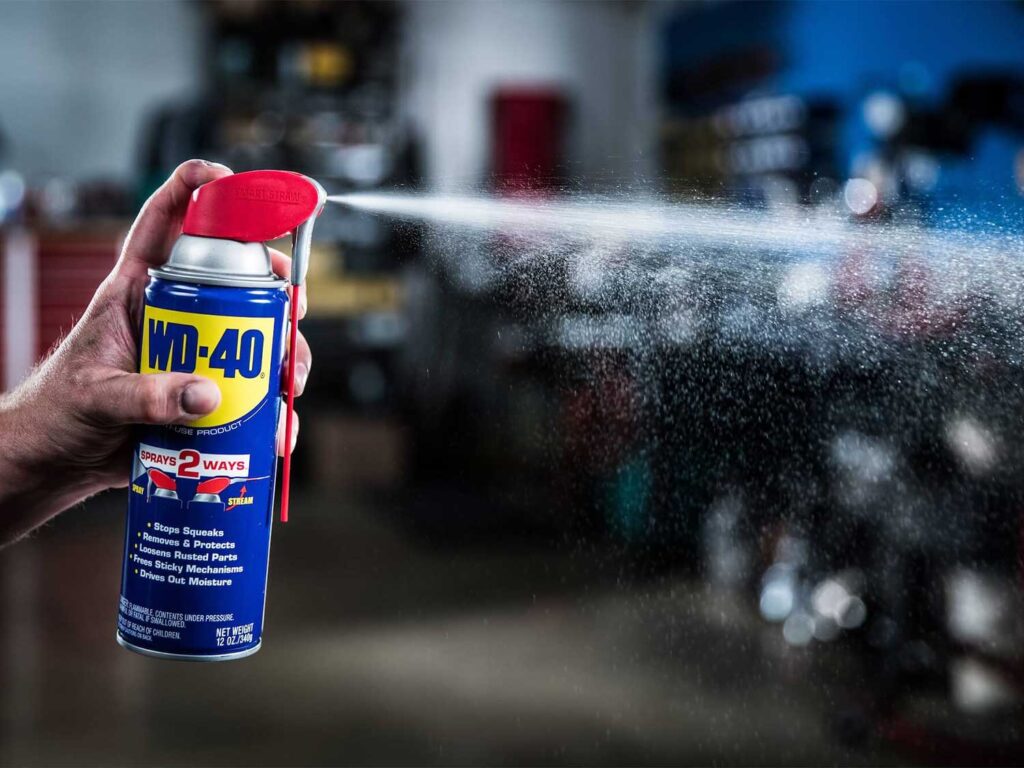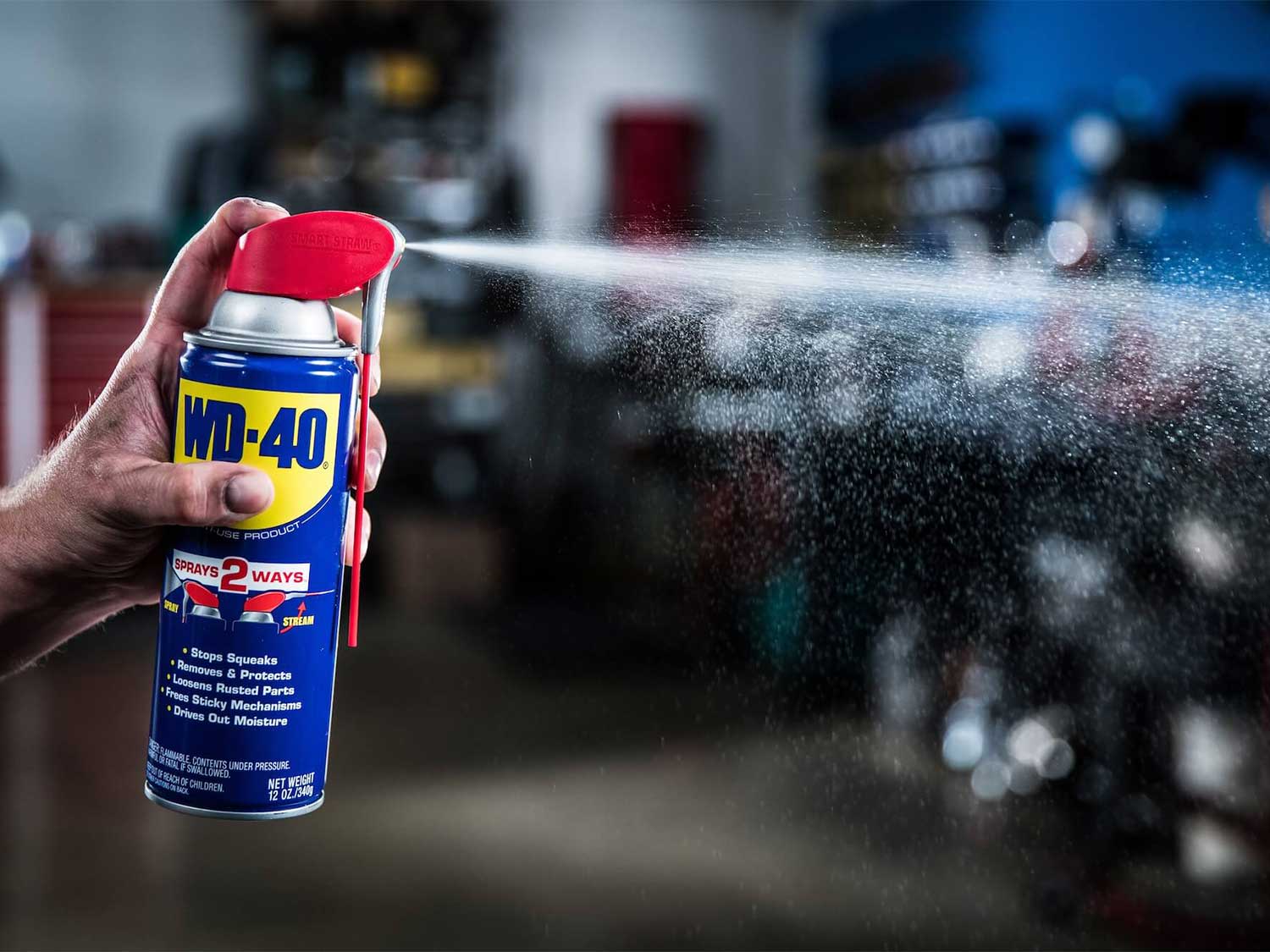
Can I Spray WD40 on Brakes? Understanding the Risks and Alternatives
The question “can I spray WD40 on brakes?” often arises when dealing with squeaky or seemingly stuck brake components. WD40 is a ubiquitous household product known for its lubricating, water-displacing, and rust-preventative properties. However, using it on your vehicle’s braking system can have severe consequences. This article will delve into the reasons why applying WD40 on brakes is a bad idea, explore potential risks, and suggest safer alternatives for brake maintenance.
Understanding Brake Systems
Before discussing the implications of using WD40, it’s essential to understand how a brake system works. A typical vehicle brake system consists of several components, including:
- Brake Pads: These are friction materials that press against the rotors to slow the vehicle.
- Brake Rotors (or Discs): These are metal discs that rotate with the wheels.
- Calipers: These house the brake pads and use hydraulic pressure to force the pads against the rotors.
- Brake Lines: These carry brake fluid from the master cylinder to the calipers.
- Master Cylinder: This is the primary hydraulic component that generates pressure when the brake pedal is pressed.
The entire system relies on friction and precise hydraulic pressure to function safely and effectively. Any interference with these elements can compromise the vehicle’s ability to stop.
Why WD40 and Brakes Don’t Mix
The primary reason you should never spray WD40 on brakes is that it’s a lubricant. Brakes rely on friction to stop a vehicle. Introducing a lubricant like WD40 directly counteracts this fundamental principle. Here’s a breakdown of the potential issues:
Reduced Friction
WD40 on brakes significantly reduces friction between the brake pads and rotors. This can lead to:
- Increased Stopping Distance: The vehicle will take longer to come to a complete stop, increasing the risk of accidents.
- Brake Fade: Overheating can occur more rapidly as the brakes have to work harder to achieve the same level of stopping power.
- Loss of Control: In extreme cases, the brakes may become almost entirely ineffective, resulting in a dangerous loss of control.
Contamination of Brake Pads
Brake pads are porous and can absorb liquids like WD40. Once contaminated, the pads become less effective and may need replacement. The contamination spreads, affecting the entire braking surface and reducing its ability to grip the rotor properly. This is a costly and potentially dangerous outcome of spraying WD40 on brakes.
Damage to Rubber Components
Some components in the brake system, such as seals and hoses, are made of rubber. WD40 can degrade rubber over time, leading to leaks and system failures. This can compromise the hydraulic pressure needed for effective braking, resulting in a dangerous situation.
Attracting Dirt and Debris
While WD40 can initially clean surfaces, it leaves a sticky residue that attracts dirt and debris. This accumulation can further reduce the effectiveness of the brakes and accelerate wear on the brake pads and rotors. Over time, this buildup can create a grinding effect, damaging the surfaces and requiring more frequent replacements.
Potential Short-Term Effects
Even a small amount of WD40 on brakes can produce noticeable short-term effects:
- Squealing or Grinding Noises: The altered friction coefficient can lead to unusual sounds during braking.
- Spongy Brake Pedal Feel: The brake pedal may feel softer or less responsive than usual.
- Pulling to One Side: Uneven contamination can cause the vehicle to pull to one side during braking.
What to Do If You’ve Already Sprayed WD40 on Brakes
If you’ve accidentally sprayed WD40 on brakes, it’s crucial to take immediate action to mitigate the risks:
- Do Not Drive the Vehicle: Driving with contaminated brakes is extremely dangerous.
- Clean the Brakes Thoroughly: Use a dedicated brake cleaner to remove the WD40 residue. Brake cleaner is specifically designed to dissolve and remove contaminants without damaging brake components.
- Inspect the Brake Pads: If the pads are heavily contaminated, they may need to be replaced. It’s often better to replace them than risk compromised braking performance.
- Consult a Professional Mechanic: If you’re unsure about the extent of the contamination or how to properly clean the brakes, seek professional help. A mechanic can inspect the system and ensure it’s safe to drive.
Safer Alternatives for Brake Maintenance
Instead of using WD40 on brakes, consider these safer and more effective alternatives:
Brake Cleaner
Brake cleaner is specifically formulated to clean brake components without leaving a residue. It can remove brake dust, grease, and other contaminants effectively. Always use brake cleaner in a well-ventilated area and follow the manufacturer’s instructions. [See also: How to Use Brake Cleaner Effectively]
Brake Lubricant
For lubricating specific brake components (like caliper pins or backing plates), use a dedicated brake lubricant. These lubricants are designed to withstand high temperatures and prevent corrosion without affecting the friction surfaces. Applying a small amount of brake lubricant to these areas can help prevent squealing and ensure smooth operation.
Copper Anti-Seize Compound
Copper anti-seize compound can be used on the back of brake pads to prevent squealing. It creates a barrier between the pad and the caliper piston, reducing vibrations that cause noise. Apply sparingly and avoid getting any on the friction surface.
Professional Brake Service
For complex brake issues or if you’re not comfortable working on your brakes, it’s best to seek professional service. A qualified mechanic can diagnose and repair any problems safely and effectively. Regular brake inspections are also essential for maintaining your vehicle’s safety. [See also: Signs Your Brakes Need Replacing]
Preventing Brake Problems
Preventative maintenance is key to avoiding brake problems. Here are some tips:
- Regular Inspections: Check your brake pads and rotors regularly for wear.
- Proper Fluid Levels: Maintain the correct brake fluid level and flush the system according to the manufacturer’s recommendations.
- Avoid Harsh Braking: Reduce aggressive braking to prolong the life of your brake components.
- Listen for Unusual Noises: Pay attention to any squealing, grinding, or other unusual noises that may indicate a brake problem.
Conclusion
In conclusion, can I spray WD40 on brakes? The answer is a resounding no. Using WD40 on your brakes can severely compromise their effectiveness, leading to increased stopping distances, brake fade, and potential accidents. Stick to dedicated brake cleaners and lubricants, and when in doubt, consult a professional mechanic. Prioritizing safety and proper maintenance will ensure your vehicle’s braking system performs reliably and keeps you safe on the road. Remember, the small convenience of using WD40 on brakes is never worth the immense risk it poses to your safety and the safety of others.

